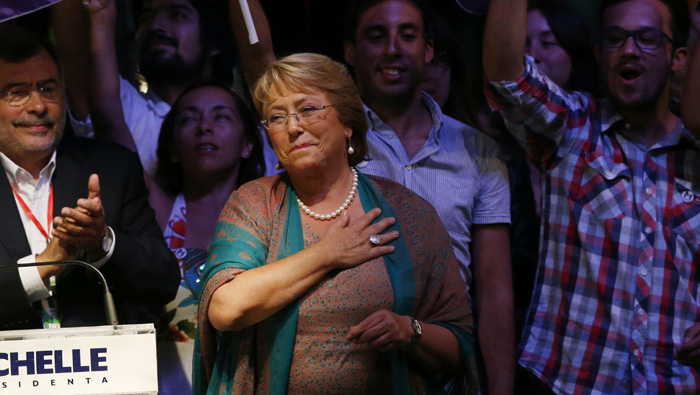
New York: UN Secretary-General Antonio Guterres has chosen former Chilean President Michelle Bachelet to be the world body's new human rights chief, five diplomats said on Wednesday.
Bachelet now needs to be approved by the 193-member U.N. General Assembly. She would replace Jordan's outspoken Zeid Ra'ad Al Hussein, who is stepping down at the end of the month after one four-year term in the Geneva-based job.
A group of ambassadors was told of the decision on Tuesday by UN Deputy Secretary-General Amina Mohammed, said the diplomats, speaking on condition of anonymity.
UN spokesman Farhan Haq said he expected Guterres to notify General Assembly President Miroslav Lajcak of his decision "very soon," adding: "At this point I don't have a name to confirm or announce."
Bachelet, a victim of torture under the dictatorship of Augusto Pinochet, was conservative Chile's first female leader. The paediatrician-turned-politician first served as president of Chile from 2006 to 2010. Her amiable style, welfare policies and steady economic growth in one of the region's most developed countries made her popular.
Bachelet then led UN Women, a body for gender equality and the empowerment of women, between 2010 and 2013, before returning to Chile where she again served as president from 2014 to 2018, pushing for a more radical tax-and-spend agenda, as well as broader abortion rights.
Zeid told reporters in New York earlier this month that he did not seek a second term because he did not believe he would have the support of key world powers, including the United States, China and Russia.
Zeid has been strongly critical of some of US President Donald Trump's policies and his attacks on the media. "Someone said to me 'just come out swinging' and that's what I did," Zeid said of advice he was given when he started the job in 2014.
"We do not bring shame on governments, they shame themselves." Zeid said the pressure of the human rights job was intense.